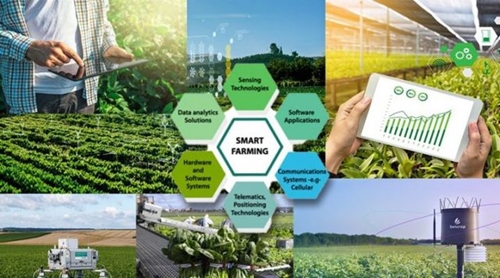August 14, 2022 | 18:30 (GMT+7)
Vietnam accelerating digital transformation in new-style rural building
The Government has approved a national program on digital transformation in building new-style rural areas, towards smart rural development, for the 2021 - 2025 period.
The program will be implemented in all rural areas across Vietnam by the end of 2025, including extremely disadvantaged communes in ethnic minority and mountainous and coastal regions.
    |
 |
|
(Photo for illustration: baochinhphu.vn) |
It aims to accelerate digital transformation to enhance the effectiveness of the national target program on new-style rural building, contributing to boosting rural economy, improving rural living standards, and bridging gap in service quality between rural and urban areas.
A goal by 2025 is to have at least 90% of central, 80% of district-level and 60% communal public documents handled online and at least 97% of communes meeting the new-style rural criteria on information and telecommunications.
It also plans to promote digital economy in an effort to better develop the rural economy. Accordingly, at least 70% of communes will have cooperatives and 70% of districts will have agricultural business models which connect production and distribution of key farming product, which apply digital technology.
In addition, at least 40% of communes and districts should be able to provide at least one essential public service in healthcare, education, community surveillance, security, environment and culture) and collect feedback on people’s satisfaction regarding rural development on a virtual platform. Each and every centrally-run city and province should have at least one trial smart rural commune model in the field which it holds advantages of, for example economy, rural tourism, environment, and culture.
The models will serve as reference for the development of a new set of criteria for new-style rural building for the 2026 - 2030 period.
Source: VNA